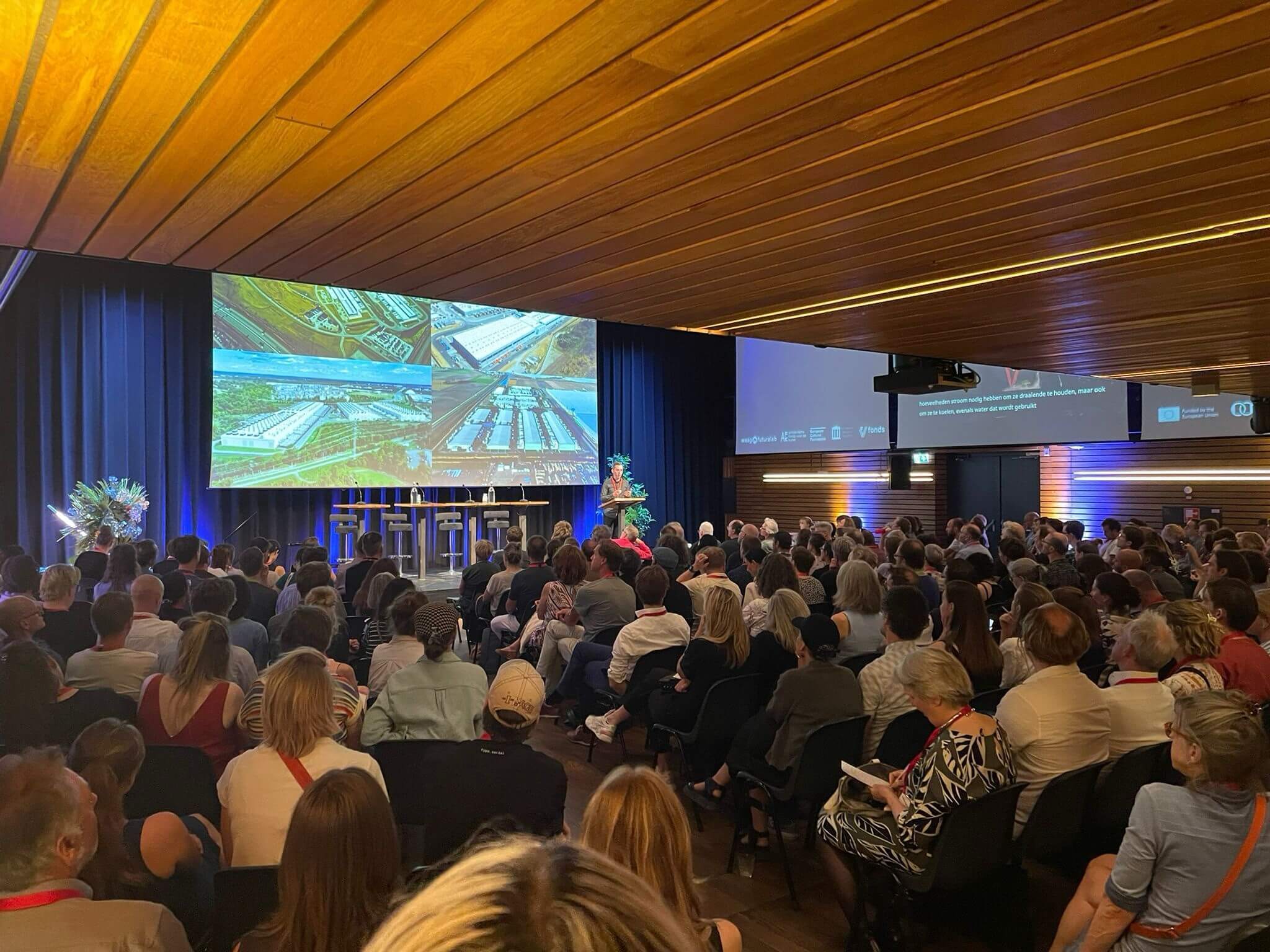
CIIIC at PublicSpaces 2025: Building a Public Digital Future Together
On Friday, June 13, 2025, CIIIC attended the annual PublicSpaces Conference at Pakhuis de Zwijger, Amsterdam. The edition Shaping Our Digital Future brought together more than 50 speakers who worked from various perspectives on a fairer, more sustainable, and more independent digital landscape. A relevant conference with necessary conversations, encouraging perspectives, and important issues that we as a community are increasingly facing.
Technology for People, Not for Profit
The conference was opened by Canadian tech journalist and critic Paris Marx, known from the podcast Tech Won’t Save Us. In his keynote, he provided an explanation of the profit-driven model of Big Tech, which serves shareholders instead of the public interest. He elaborated on the lack of attention to sustainability in the context of resource use due to the complete focus on profit maximization. What does an app or service truly cost in terms of energy, server capacity, maintenance, and replacement? And is that justifiable in light of climate and resources? The call was clear: digitalization must become sustainable, whether it involves software development, hardware usage, or data traffic. Sustainable digital thinking must become the norm, not the exception.
In his view, sovereignty is a prerequisite and independence is a necessity for the sector to operate, which in the current situation requires a radically new design; taking into account public values and in the general interest of citizens. He therefore advocated for the availability of a widely supported alternative with international backing and a sustainable foundation. Public alternatives such as ethical AI, data commons, and public infrastructure can be financed through public programs like Horizon Europe. Marx also emphasized the geopolitical pressure to realize these alternatives.
You can find the introduction to his keynote on the Public Spaces conference page.
Digitally Independent Through Collaboration
During the subsequent panel discussion “Putting Digital Sovereignty into Practice,” it was emphasized that digital sovereignty is not a national project but a European and international task. During this panel discussion, as well as in several other sessions during the conference, it became clear that collaboration between governments, open source developers, and civil society organizations is crucial to build alternatives to existing infrastructures.
Michiel Leenaars (Nlnet Foundation) sat together with Paris Marx (Tech Won’t Save Us), Zuzanna Warso (Open Future), and Emma Ghariani (Digital Commons at the French Interministerial Directorate for Digital Affairs) during this specific conversation. They elaborated on the opening line of Paris Marx with concrete examples for realizing a commons infrastructure through the EuroStack framework (EuroStack is a proposal for an open, modular, and publicly responsible digital infrastructure that enables Europe to build technological sovereignty as an alternative to the dominance of commercial Big Tech platforms) and the European EDIC program. EDIC is a collaboration committed to a European ecosystem of open source technologies, working on an open, shared digital foundation.
We saw how these examples were rooted in collaboration between public institutions and how important this is for the scalability and legitimacy of alternatives. There’s work to be done!
Public Alternatives in Action - the Fediverse
During the Bazaar, finally, participants could get acquainted with tangible alternatives to commercial technology, such as secure communication tools, open source platforms from the public sector, and the so-called Fediverse; a network of interconnected social media platforms operating through open standards like ActivityPub.
In the Fediverse, users of, for example, Mastodon (an alternative to X/Twitter) or Pixelfed (an alternative to Instagram) can communicate with each other without relying on a single central service. These projects made it evident that a public technological choice is no longer just an idea, but is increasingly translating into concrete applications and institutions that prioritize public values.
What Can You Do Now?
If you are inspired by these insights, you don’t have to stand on the sidelines. At CIIIC, we see opportunities in four concrete places:
- Join the PublicSpaces network, where more than 70 organizations are committed to digital commons;
- Participate in open calls from RVO, for example, for participation in Horizon Europe or EDIC initiatives;
- Contribute to open source projects through NLnet, with over 500 projects focusing on infrastructure, privacy, and public values.
- Dive into analyses by AlgoSocor Open Futureon ethical AI, smart devices, and digital sovereignty.
The full agenda and sessions remain available online for those who want to look back or read further.
Working Together Towards a Different Digital Future
For us at CIIIC, this conference was a confirmation: to maintain control over our digital future, it is essential that we continue and especially increase (collaborative) work, building, and experimenting with a digital infrastructure that takes public values such as transparency, inclusion, and autonomy as its starting point, not as an afterthought. This must be done at a European level, locally connected, and with public impact in mind.